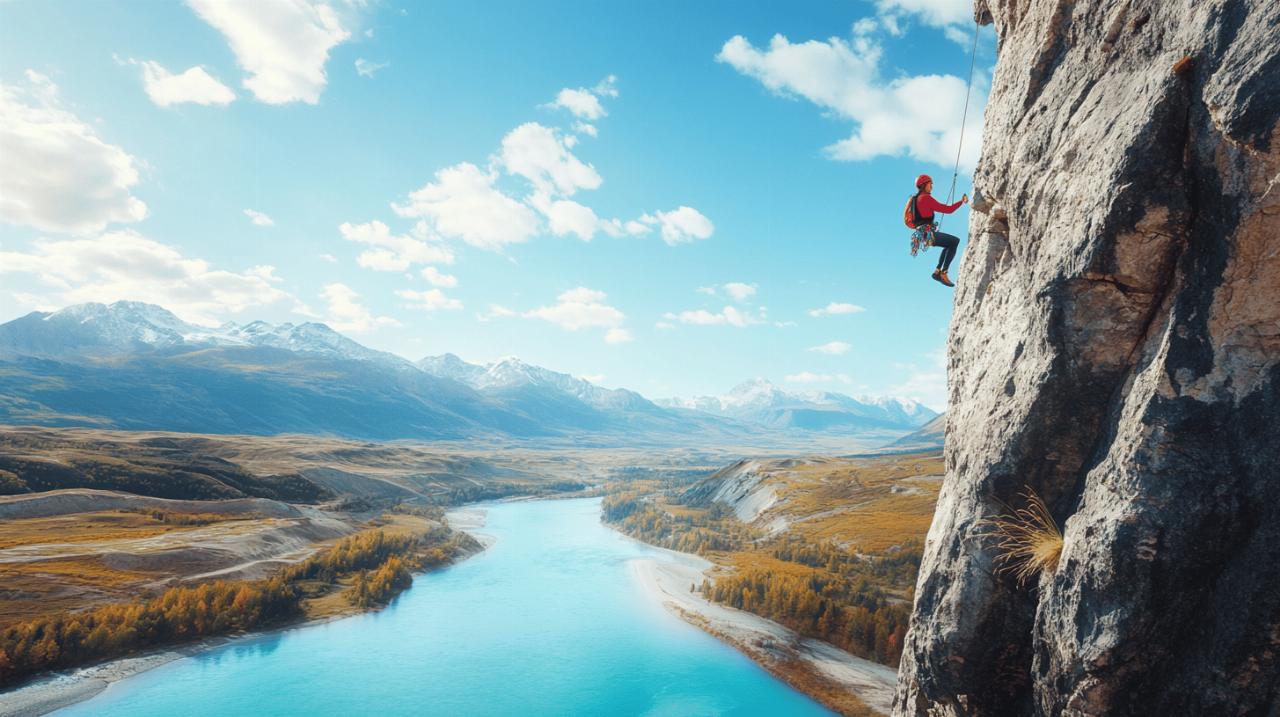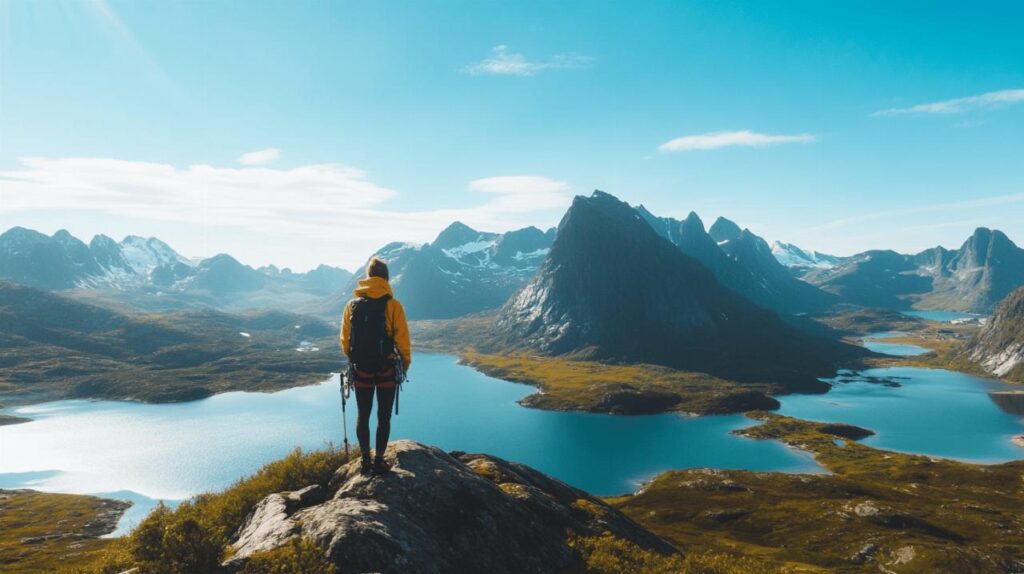Solo travel opens doors to extraordinary adventures, allowing you to discover not just new places, but also aspects of yourself you never knew existed. With the freedom to craft your own journey, solo explorers have the unique opportunity to experience destinations in deeply personal ways. Whether you're a seasoned wanderer or planning your first independent trip, these innovative approaches will transform how you engage with new places around the world.
Embracing the freedom of solo exploration
The essence of solo travel lies in its unparalleled liberty. Without the need to compromise or accommodate others' preferences, you can truly follow your heart's desires. Travel Myself enthusiasts often report that this freedom creates space for more authentic and meaningful experiences that simply aren't possible when travelling with companions.
Setting your own pace and itinerary
One of the greatest joys of solo exploration is the ability to move entirely at your own rhythm. You can linger for hours in that fascinating museum that caught your attention, or change plans completely if something doesn't feel right. There's no need to rush through breakfast or wake up at a specific time unless you want to. This flexibility allows you to tune into your natural curiosities and energy levels, creating a journey that feels genuinely restorative rather than exhausting.
Spontaneous detours and unexpected discoveries
Without the constraints of group decision-making, solo travellers can embrace spontaneity in ways that often lead to the most memorable experiences. That unmarked path leading away from the main street? That local festival you just heard about from someone at your accommodation? These unplanned detours frequently become the highlights of solo adventures. Many experienced travellers who have visited dozens of countries confess that their most treasured memories came from moments they never could have planned.
Authentic cultural immersion through local connections
While landmarks and attractions have their place, the heart of any destination beats within its people and their daily lives. Solo travellers have a distinct advantage in making meaningful local connections, as they're more approachable and often more motivated to reach out beyond their comfort zone.
Participating in cookery classes and food experiences
Food serves as a universal language and an immediate pathway into cultural understanding. Joining a local cooking class offers more than just culinary skills; it provides insights into family traditions, agricultural practices, and cultural values. In Thailand, for instance, learning to prepare authentic Tom Yum soup connects you with centuries of culinary history, while in Italy, a pasta-making workshop might lead to conversations about regional variations and fierce local pride in traditional recipes. These experiences create natural settings for conversations with locals that extend far beyond tourist pleasantries.
Language exchange opportunities and conversation groups
Even with minimal language skills, seeking out conversation exchanges or language meetups can transform your travel experience. Many cities host regular language cafés where locals practicing English welcome foreign visitors hoping to learn basic phrases. These gatherings often evolve into friendships, invitations to local events, and recommendations you'd never find in guidebooks. In places like Budapest or Prague, where English is widely spoken but locals appreciate visitors' efforts to learn a few words, these exchanges can bridge cultural divides with surprising depth.
Venturing beyond tourist hotspots
While iconic attractions deserve their fame, the soul of a destination often reveals itself in places where tourists rarely tread. Solo travellers have the flexibility to explore these hidden corners, discovering authentic experiences that mass tourism hasn't altered.
Researching hidden gems before your journey
Before arriving at your destination, dedicate time to discover lesser-known attractions. Social media groups dedicated to specific destinations often contain recommendations from locals and previous visitors about charming neighbourhoods, unmarked viewpoints, or small museums that rarely make it into official guides. For travellers heading to Costa Rica, this might mean finding a less visited cloud forest instead of the crowded Manuel Antonio National Park, while in Singapore, it could lead to discovering heritage neighbourhoods beyond the gleaming downtown area.
Following local recommendations rather than guidebooks
Upon arrival, make it a priority to ask locals where they spend their leisure time. Accommodation hosts, shop owners, and even taxi drivers can point you toward authentic experiences that guidebooks might miss. In destinations like Croatia or Greece, this approach might lead you to family-run tavernas serving home-cooked meals or secluded beaches only locals frequent. These recommendations often come with stories and context that enrich your understanding of the place far beyond what any printed guide could provide.
Prioritising safety whilst maintaining adventure
Safety concerns shouldn't diminish the excitement of solo exploration. With thoughtful preparation and awareness, solo travellers can balance security with the thrill of discovery.
Pre-trip research and preparation strategies
Knowledge forms your first line of defence when travelling alone. Before departure, research not just attractions but also local customs, common scams, safe transportation options, and areas to avoid. Understanding the criteria that make destinations suitable for solo travellers—such as overall safety, reliable public transportation, and accommodation options—helps create a foundation for confident exploration. For first-time solo travellers, destinations like Portugal, New Zealand, or Singapore offer excellent combinations of safety, accessibility, and engaging experiences.
Staying vigilant without limiting your experiences
Maintaining awareness doesn't mean viewing every situation with suspicion or avoiding authentic experiences. Instead, it means developing habits that protect you while still allowing for adventure. Walking confidently, even when unsure of directions, dressing appropriately for the local culture, and becoming familiar with local currency to avoid fumbling with money in public are simple strategies that help you blend in. Regular visitors to the same cafés or shops quickly become recognised, creating a small network of people who notice your presence and absence—an invisible safety net during your travels.
Using travel as a catalyst for personal growth
Perhaps the most profound aspect of solo travel is its capacity to transform the traveller. When you navigate unfamiliar environments independently, you inevitably develop new capabilities and perspectives.
Challenging yourself with new activities and skills
Solo travel presents constant opportunities to expand your abilities. Whether it's learning to surf in Bali, attempting a new language in Poland, or navigating complex public transportation in Munich during Oktoberfest, these challenges build confidence that extends far beyond your journey. Even seemingly minor accomplishments—successfully ordering a meal in a language you barely speak or finding your way back to your accommodation without GPS—contribute to a growing sense of capability that transforms how you see yourself.
Documenting your transformation through journaling or photography
Capturing your journey through writing or images creates a tangible record of your evolution as a traveller and person. Beyond preserving memories, these practices encourage mindfulness and deeper observation of your surroundings. Many solo travellers find that reviewing their early journal entries or photographs from previous trips reveals remarkable growth in confidence, adaptability, and cultural awareness. This documentation becomes not just a souvenir but evidence of personal development that continues to inspire future adventures and challenges.

